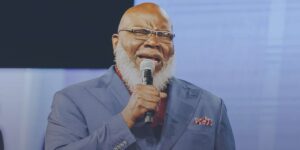The Spiritual Warfare Behind Racial Tension in the Church
The 21st-century church is enjoying an emergence of multicultural fellowships and congregations. However, there are those who suggest that even in the midst of this surge of diverse brotherhood and sisterhood, Christian leaders are not doing enough to bring about true racial reconciliation.
Reflection: I grew up in the ’80s in a small city in south central Virginia. Unfortunately, I am not a stranger to racial tensions. Danville was the last capital of the Confederacy, and the emotional damage of slavery seemed to have persisted across time in our little city.
The divides that were caused by a lack of racial reconciliation was felt nowhere more strongly than in our churches. The most segregated time of the week was that two-hour block of time on Sunday morning.
I now realize that the enemy of our faith masterfully uses God’s anatomical and psychological design to create disease among people. Large-scale dissension and discord is a community disease that reduces the effectiveness of the body of Christ.
Spiritual Warfare: In Matthew 12, Jesus encountered a demon-possessed man. This spiritual attack manifested itself in the form of blindness and muteness. Jesus, of course, healed the man, but the solution to his physical ailment was the addressing of the spiritual attack.
As it was with the man’s blindness and muteness, so it is with the emotional ailments that are characterized by unhealthy biases against other people in God’s beloved family.
Faith and Science: Many of our conversations on racial issues in the church focus on explicit biases, which I loosely define here as the overt and easily recognizable prejudices and attitudes toward other groups of people.
However, the deeper story lies in our implicit biases, which are the subconscious feelings, perceptions, attitudes and stereotypes that have developed as a result of our prior experiences. Due to our psychological design, we are unaware of the attack, and this allows the enemy to wreak havoc in this area.
To limit our conversations to explicit biases and to not address implicit biases is to paint over rust.
Paul encourages us to be transformed by the renewing of our minds. There is action required on our part. The renewing process certainly includes the conscious thoughts of which we are aware, but we must also renew our subconscious mind if we are to experience the transformation that Paul describes.
This is more than a clinical issue. Many of the negative projections of our past experiences onto present circumstances is due to demonic influence in the same way that the man’s blindness of muteness was the result of demonic influence.
Note that this type of spiritual attack is not targeted in a single direction. Implicit bias is a two-way street. Whites subconsciously project negatively on blacks, and blacks subconsciously project negatively on whites, in part as a result of demonic influence. The same is true of other social groups such as women and men.
The Path Forward: Seek out uncomfortable engagements. This is a purposeful effort to engage people in groups other than your own in a posture of humility, servitude and learning. Your goal is not to express what you know or how you feel; rather, it’s to listen and understand. It requires us to ask difficult questions and to engage in conversations that create discomfort within us.
If the enemy is promoting a narrative that divides God’s people, then we should courageously engage in conversations about the subject of those narratives with the goal to love, learn and grow.
The strategy of uncomfortable engagements can be operationalized in healthy, fruitful and Christ-honoring ways in our churches and communities.
Scientifically, uncomfortable engagements provide all parties with new experiences and exposures that will work to reprogram the subconscious mind.
When we are courageous enough to see the world through our neighbor’s eyes, we ultimately see ourselves in our neighbor, because the same Holy Spirit resides in all of our Father’s children.
This strategy, if implemented effectively, has the potential to break down stereotypes and to positively shift paradigms, because it connects us to the other person’s humanity in a deeper way.
Let us use our love for Jesus as the motivation to engage one another in uncomfortable ways that will produce healthy growth inside of us and kingdom fruit outside of us. {eoa}
Dr. Adrian Coles is the associate pastor of Revival Church in Raleigh, North Carolina, and a clinical researcher at Duke University. He is passionate about discipleship and identifying the synergy between science and faith to identify practical ways to operationalize biblical guidance. You can follow him on Instagram for inspirational content, and you can explore his medical research on his Duke Scholars page.






































